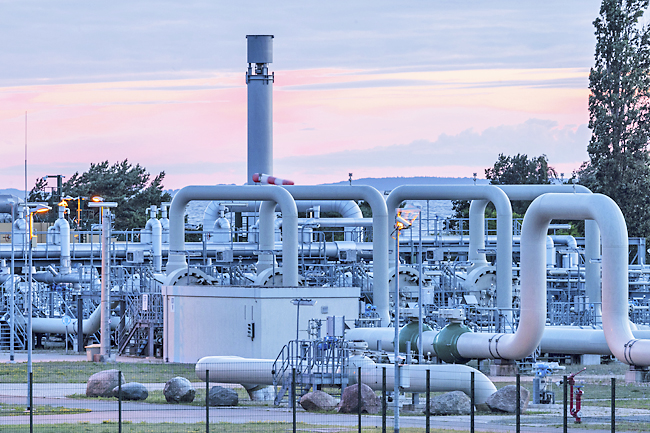BERLIN (AP) – A major natural gas pipeline from Russia to western Europe shut down on Monday for annual maintenance as Germany prepared to give the green light for 10 coal-fired power plants to restart because of concerns that Russia may not resume the flow of gas as scheduled.
The Nord Stream 1 pipeline runs under the Baltic Sea from Russia and is Germany’s main source of Russian gas. Gas is usually sent onward to other countries, as well.
The line is scheduled to be out of action until July 21 for routine work that the operator said includes “testing of mechanical elements and automation systems”. The operator’s data showed the gas flow dropping as planned on Monday morning.
German officials are suspicious about Russia’s intentions, particularly after Russia’s Gazprom last month reduced the gas flow through Nord Stream 1 by 60 per cent.
Gazprom cited technical problems involving a gas turbine powering a compressor station that partner Siemens Energy sent to Canada for overhaul and couldn’t be returned because of sanctions imposed over Russia’s invasion of Ukraine.

Canada said over the weekend that it would allow the part to be delivered to Germany, citing the “very significant hardship” that the German economy would suffer without a sufficient gas supply.
German politicians have dismissed Russia’s technical explanation for last month’s reduction in the gas flowing through Nord Stream 1, saying the decision was a political gambit to sow uncertainty and push up energy prices.
German Vice Chancellor Robert Habeck has said he suspects that Russia may cite “some little technical detail” as a reason not to resume gas deliveries through the pipeline after this month’s maintenance.
The head of Germany’s network regulator, the Bundesnetzagentur, said that “no one can say exactly” whether the gas will be switched back on.
“We have very varied signals from Russia,” Klaus Mueller told ZDF television. “There are Kremlin spokespeople who say that, in combination with the Siemens turbine, they can deliver significantly more again; but there have also been very martial messages from the Kremlin.”
Germany and the rest of Europe are scrambling to fill gas storage in time for winter and reduce their dependence on Russian energy imports. Germany, with Europe’s biggest economy, has been receiving about 35 per cent of its gas to power industry and generate electricity from Russia.
Last month, Habeck activated the second phase of Germany’s three-stage emergency plan for natural gas supplies, warning that the country faced a “crisis” and that storage targets for the winter were at risk.
To make up for shortfalls, the German government is preparing to approve a decree that will give the green light for utility companies to fire up 10 dormant coal-fired power plants and six that are oil-fuelled.
Another 11 coal-fired power plants scheduled to be shut down in November will be allowed to keep operating.
The government argues that the short-term increase in emissions will be compensated for with new measures to accelerate the installation of renewable energy.






